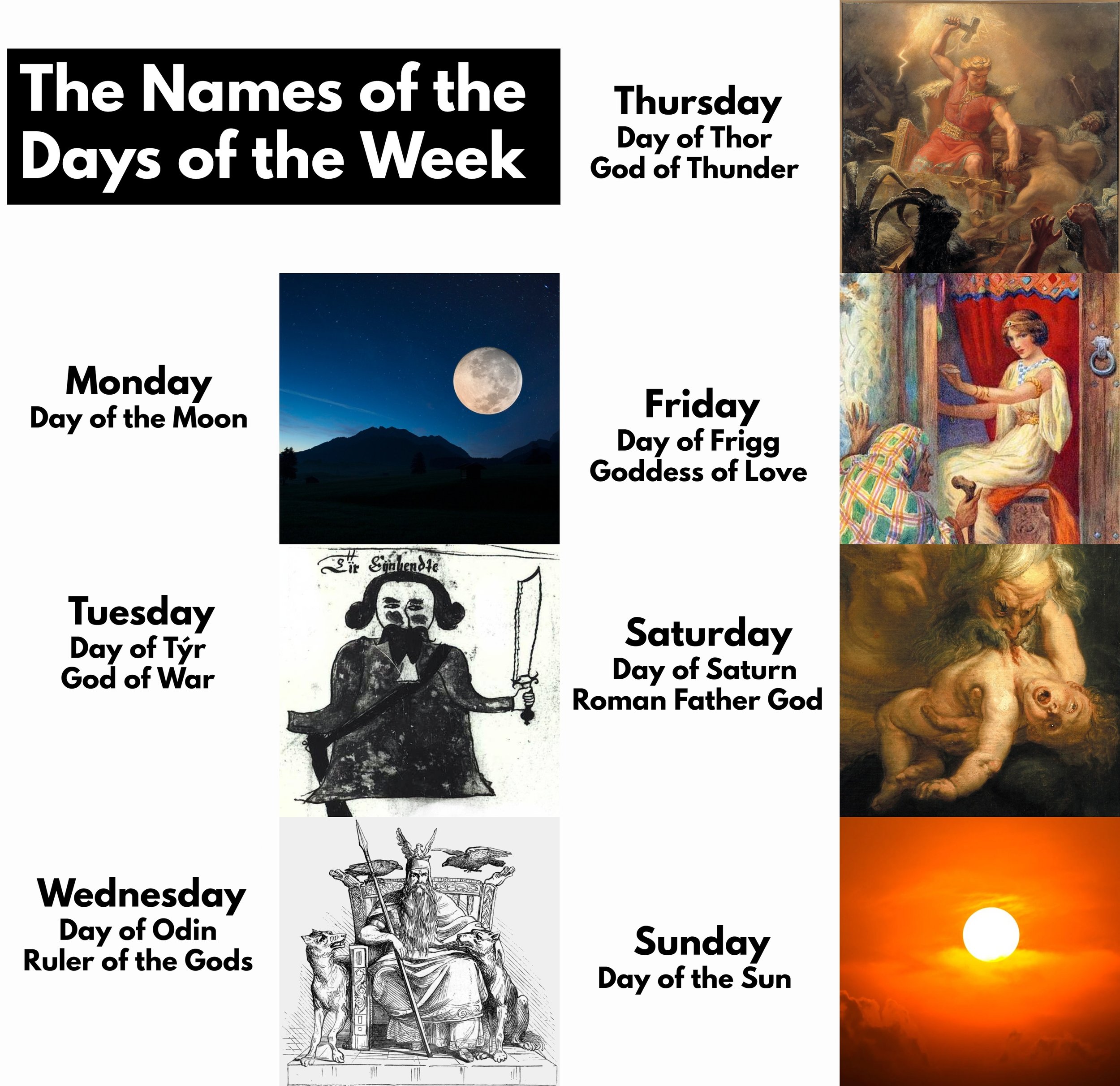The names of the days of the week in English have their origins in ancient mythology, specifically from Roman, Norse, and Germanic traditions. The Romans initially named the days of the week after the seven classical planets, which were associated with their respective gods. When Germanic and Norse cultures adopted the Roman calendar, they replaced some of the Roman gods with their own deities. Here's a breakdown of the origins of the names of the days of the week in English:
Sunday: Derived from "Sun's day" or "Day of the Sun." The day was named in honor of the Sun, which was considered a deity in various ancient cultures, including Roman and Norse mythology.
Monday: Derived from "Moon's day" or "Day of the Moon." This day was dedicated to the Moon, another celestial body that was revered as a deity in many ancient cultures.
Tuesday: Derived from "Tiw's day" or "Tyr's day." Tiw (also known as Tyr) was a Norse god of war and the sky. The Romans named this day "dies Martis," after Mars, their god of war. The Germanic and Norse people replaced Mars with their own god of war, Tiw or Tyr.
Wednesday: Derived from "Woden's day" or "Odin's day." Woden (also known as Odin) was the chief god in Norse mythology, associated with war, wisdom, and poetry. The Romans named this day "dies Mercurii," after Mercury, their god of commerce and travel. Germanic and Norse cultures replaced Mercury with their own chief god, Woden or Odin.
Thursday: Derived from "Thor's day." Thor was the Norse god of thunder and strength. The Romans named this day "dies Jovis," after Jupiter, their king of the gods and god of the sky and thunder. Germanic and Norse people replaced Jupiter with their own god of thunder, Thor.
Friday: Derived from "Frigg's day" or "Freya's day." Frigg (or Freya) was the Norse goddess of love, fertility, and beauty. The Romans named this day "dies Veneris," after Venus, their goddess of love and beauty. Germanic and Norse cultures replaced Venus with their own goddess of love, Frigg or Freya.
Saturday: Derived from "Saturn's day" or "Day of Saturn." This day was named in honor of the Roman god Saturn, who was associated with agriculture and time. In this case, the Germanic and Norse people did not replace the Roman god with one of their own, so the name "Saturday" retains its Roman origin.
These names have been passed down through history and evolved over time, becoming the names we use for the days of the week in English today.








